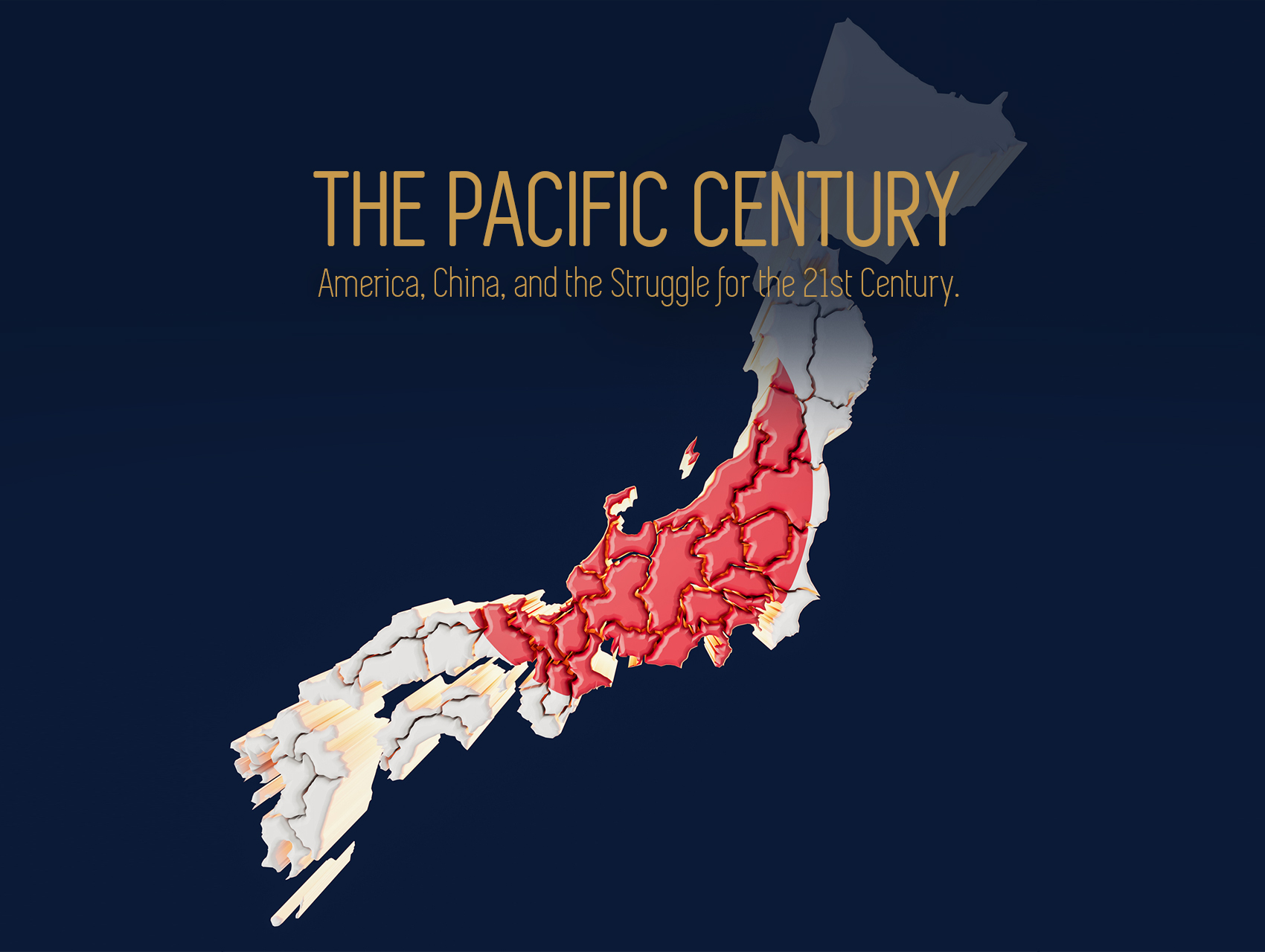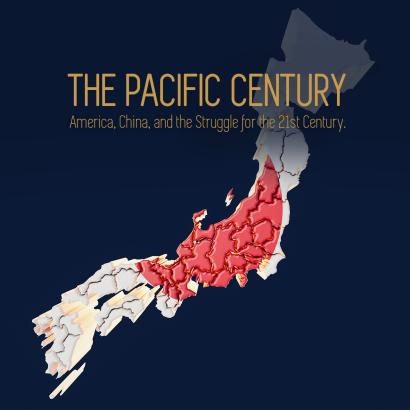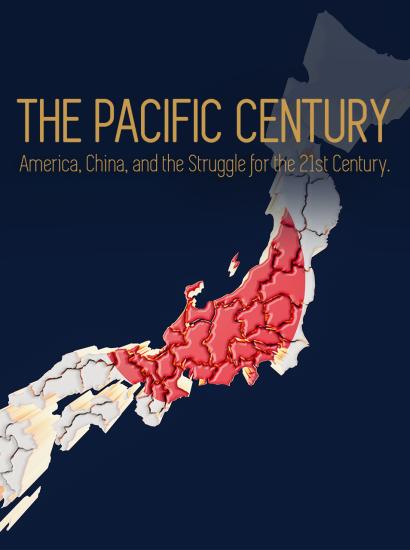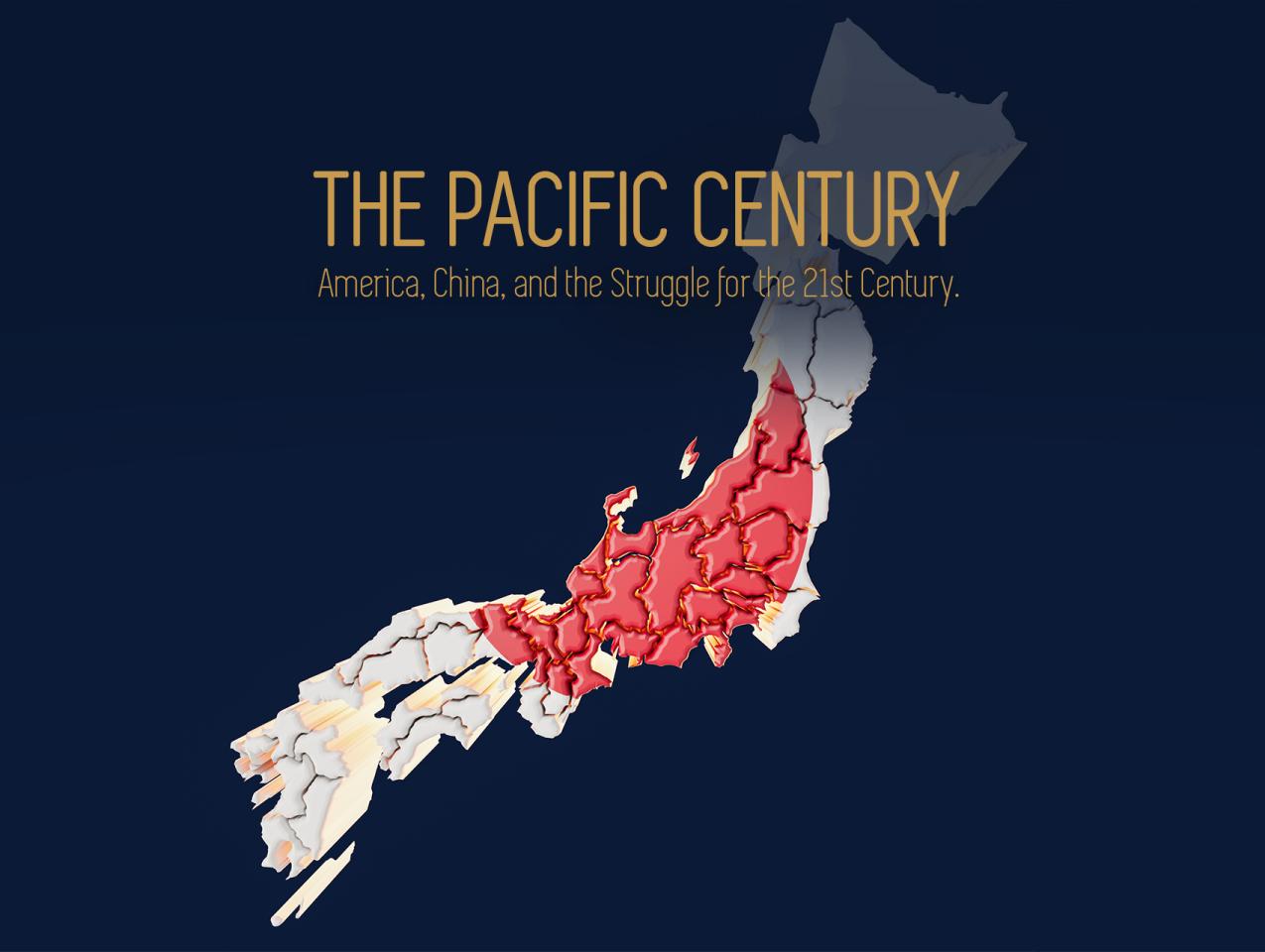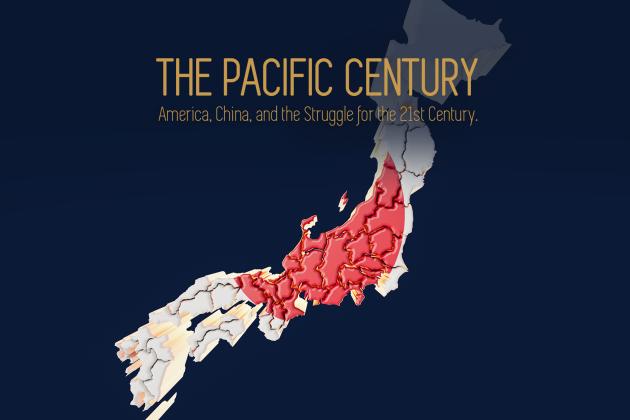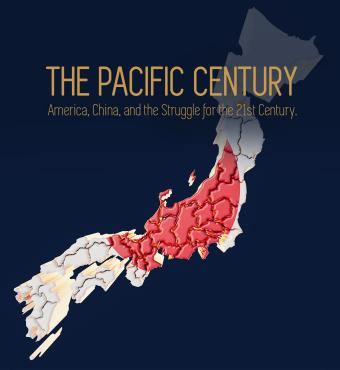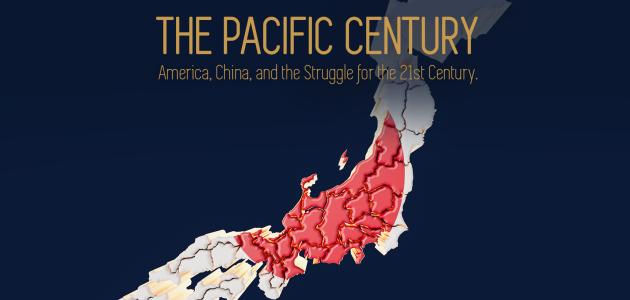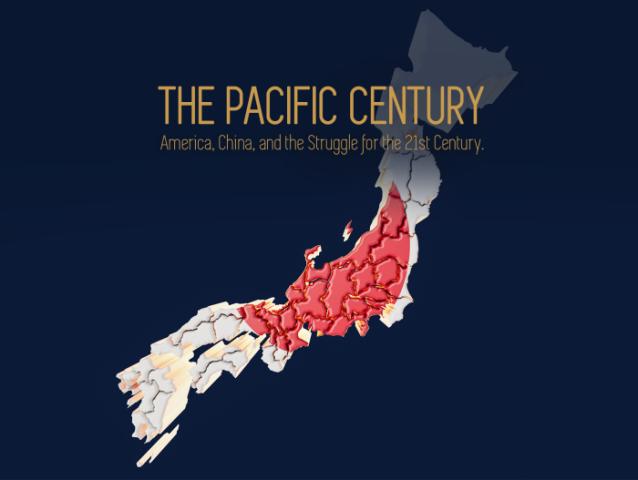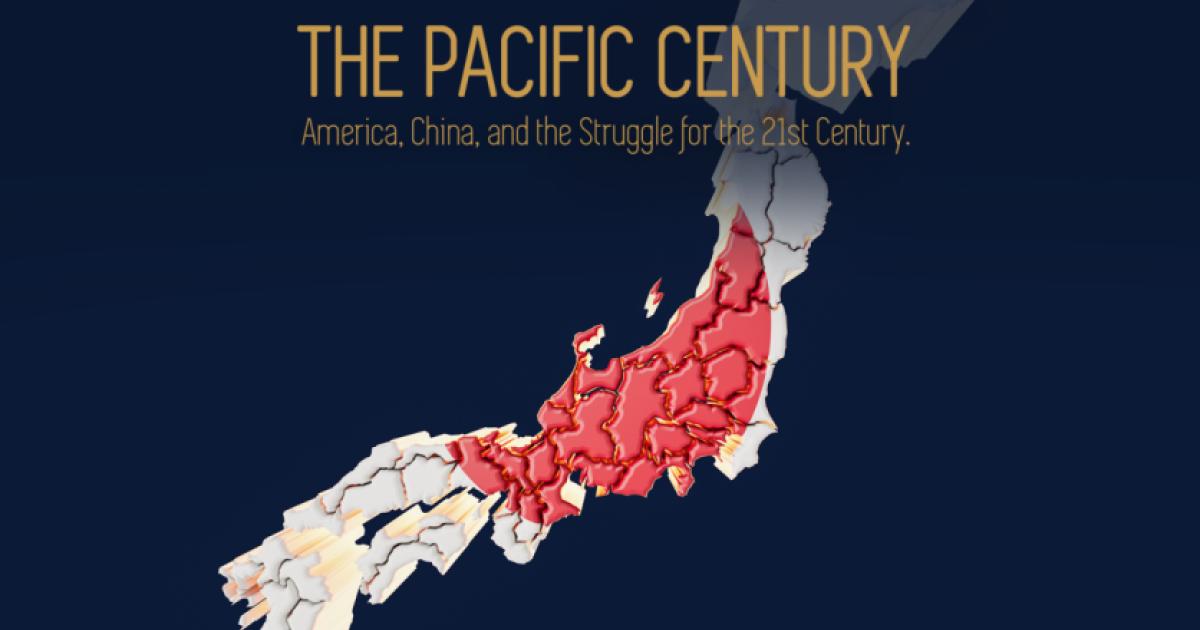Misha talks to the Wilson Center’s Shihoko Goto and the Stimson Center’s Yuki Tatsumi about Japan’s ambitious new foreign policy, the legacy of the Abe era, current Prime Minister Kishida’s agenda, and relations with Biden, Korea’s new president, and China, among other topics.
To view the full transcript, read below:
Misha Auslin: Welcome back to "The Pacific Century," a Hoover Institution podcast on China, America, the Indo-Pacific, and the fate of the 21st century. I'm your host, Misha Auslin, and today, I am very happy to be joined by two fellow Japanologists. For those of you who know my prior work, it may seem a little surprising that we haven't talked as much about Japan on the show, but arguably, Japan is becoming even more important in the Indo-Pacific than it has been for the past several decades, and so I am particularly pleased to be joined by two old colleagues, Shihoko Goto and Yuki Tatsumi. Shihoko is the director for geoeconomics and Indo-Pacific enterprise and deputy director of the Asia program at the Wilson Center here in Washington. Yuki Tatsumi is a senior fellow and codirector of the East Asia program and director of the Japan program at the Stimson Center, also here in Washington, so Yuki and Shihoko, welcome to "The Pacific Century."
Yuki Tatsumi: Thank you. Thanks for having us.
Shihoko Goto: Great to be here.
Misha Auslin: Well, it's great to have you guys here and great to talk about Japan. Some of the listeners may have heard the interview that I did with Noah Sneider who is "The Economist" bureau chief in Tokyo. Did that a few months ago. We've had some Japanese experts. We had the Japanese defense minister at the time, Kono Taro, on the show a few years ago, but really haven't spent nearly as much time talking about Japan, and so what I'd like to do today is actually talk about foreign policy, which is an area that both of you are experts in and long-time Japan-watchers, educated in Japan, obviously travel regularly when you're allowed to in the new COVID era, but written extensively on Japan's foreign policy, and I think that we're in, really, a new era of Japanese foreign policy and one that it behooves Washington policymakers to really pay a lot more attention to, so there's a lot of different things that we can talk about, but I think we have to start with the legacy of former Prime Minister Shinzo Abe. Abe, who was in office his second time from 2012 to 2020, so an unprecedented eight-year period as prime minister was, to some, a controversial figure, but really, in some ways, almost radically reformed Japanese foreign policy, or did he? And so let me start with you, Yuki. Can you talk about what you see as Abe's legacy in foreign affairs? What did he accomplish? What was most important? And what did he leave undone?
Yuki Tatsumi: Thank you, Misha, for having me, and I'm really happy to talk about these issues with a fellow Japanologist as well, so when it comes to former Prime Minister Abe, I would say the biggest legacy that he left for his successor to try to emulate, which incumbent Prime Minister Kishida is certainly doing is to really maintain, put Japan at the very forefront of the, I guess, the discussion on what the new world order should look like. If you recall, Misha, when he first came back as a prime minister and he came back to Washington as the prime minister for the second time, he did the speech at CSIS where he talked about how Japan will... He's determined that he will keep Japan as a first-rate country, and what that means for him, and what that means for him was that Japan will be a defender of the commons, uphold defender of the universal values, and also, defender of the international liberal order, which vast majority of the world has been benefited from since 1945, and I think he really put out that new framework. It was very different from what was called Yoshida Doctrine, which was prominent up until he laid out the key principles, which is economic development first, and then security policy takes, more or less, the backseat.
Misha Auslin: And that was from the 1950s.
Yuki Tatsumi: That was 1950s.
Misha Auslin: We should note that former Prime Minister-
Yuki Tatsumi: Yes, former Prime Minister Shigeru Yoshida.
Misha Auslin: Yes.
Yuki Tatsumi: So I think biggest legacy that the Prime Minister Abe leaves for us is that kind of replace that almost like Japan-centric, right? If you think about the Yoshida Doctrine, it's very focused on Japan's development as a country, so if anything, I think Abe really moved the scale perspective of the Japanese foreign policy from one that was embodied in the Yoshida Doctrine, which was very focused on Japan's own development and Japan's own security into more of Japan in the more interconnected world and what kind of role Japan play in it and how he thought Japan should play in it, so I think that is really the biggest legacy.
Misha Auslin: So let me ask you, at that point, 'cause that's actually a really interesting sort of meta-assessment and one that I hadn't thought of because so often, we look at the narrow policy specifics, right? That's what DC does is it often looks at the policy, like what, specifically, is done, so let me a actually ask you that. What were some of the specifics that translated from that big global vision, grand vision, some might even dare we call it a grand strategy into what the Japan of 2022, or let's say the 2020 Japan that he left to his successors, how is it different from 2012 when he came in? What were some of the specific, to you, the leading policies that had changed?
Yuki Tatsumi: To me, I think the leading policy that had changed was the fact that Abe really actually came up with the, before President Trump decided to call it and call it out of his own idea that this concept of free and open Indo-Pacific. He was first of, he was among the first leader in the world who talked about Pacific Ocean and the Indian Ocean as one geostrategic space. Under his government, Japan really make the shift from, I guess, Japan adjusted the way that it has, it used its kind of a decades-old foreign policy tools. For example, ODA. It was primarily-
Misha Auslin: Overseas development.
Yuki Tatsumi: Overseas Development Assistance. It has been the tool for Japan to really promote more of a indigenous economic development in the recipient countries, and it was very, more of a good Samaritan-based, needs-based, as they call it, provision of this official development assistance, but I think under Abe, Japanese government usage of this particular scheme has become more strategic, so for example, in Southeast Asia, we did start to see Japanese government providing more of a capacity-building in the area of maritime security, maritime domain awareness, capacity-building of a coast guard in the recipient countries, so end goal is still, stated end goal is still the same: help the country to help themselves, but the area in which Japan began to invest is increasingly more related to what we might call security realm, which was definitely a new trend happen, unfolding under Abe, and the trend that, frankly, I would argue, it still continues.
Misha Auslin: So I'm gonna turn, actually, to Shihoko in a second to actually ask about today and where Prime Minister Kishida is, but before we go, let me just get your assessment on some of the more granular changes that he made, for example, to the right of collective self-defense, to arms joint development and export. Can you just sort of briefly talk about some of those and how that was so different from the era, from the '50s, the postwar era onward.
Shihoko Goto: Right, so I think this is there, as we go, as more granular it gets, more revelation it has that although Abe attempted to leave that legacy of reorienting Japan's foreign policy from more Japan-centric into Japan in the world-centric, more of a bigger context, but that's where I think, where we might call rubber hits the road, where that's where I think his limitation is because actual specific policy changes that he was able to accomplish under his eight years. That is a long time as a Japanese prime minister. It is really actually more of a linear progression of, it's more linear, it's more step-by-step, and it's far more nuanced than some of us actually thought he might go, so for instance, collective self-defense that you mentioned. Under his government, Japan did reinterpret Article 9 in the way that Japan is allowed to exercise that right of collective self-defense, which is, in NATO's term, attack for one is attack for all on the specific circumstances, and I think, I believe it was a specific force circumstances, which was very different from what Abe set out to do, which is the wholesale revision or reinterpretation of Article 9.
Misha Auslin: And we should know that Article 9 is the so-called peace article and the peace constitution. Japan will not wage war, will not have a military, and the like.
Shihoko Goto: So from that perspective, Abe set out to reinterpret that Article 9 so that Japan can exercise right of collective self-defense anytime, anywhere. However, what he actually was able to accomplish was very directly linked to Japan's own national defense, and then, in a very limited circumstances, so there's a gap already from what he articulated that he wanted to do versus what he was able to accomplish, and then as, I guess, another issue that I think, another area that I could point some progress is the Japan's export of defense equipment and defense technology. Prior to Abe, for all intentions and purpose, Japan had the total embargo on all of those technologies and systems. It was never really legally bind, but the restriction was so stringent under the export control legal framework that it was just essentially impossible to pull through any of those. Abe set out to revise that and set out, set the new principle for Japan's ability to export defense technologies and defense systems, but in reality, because of the decades-old practice and old habits dies hard, Japan's own defense industry wasn't really ready for the prime time, so even after the revision, Japan really was only able to score minor successes, and many of them is really not in the major weapon system, but more in the terms of more of a coast guard equipment or more of a, I guess, in the basically loaning the secondhand, decades-old self-defense forces equipment which is about to be retired onto, let's say, countries in Southeast Asia for training and education purposes, so those are, again, the vision of Japan's defense industry become more of a global competitor versus Japan has been able to accomplish so far.
Misha Auslin: Well, that's really interesting. Yeah, I was gonna say the gap that you're mentioning here is actually very interesting, and I think there's two ways. Usually, people look at Abe either as sort of a dangerous nationalist and he was gonna rip up the constitution, or he's just praised to the skies as somebody who's completely overturned the old system, and so I think the vision that you gave in the beginning and then the caveats with it of what he was able to accomplish is actually quite interesting, which naturally raises the question of where are we today? So let me turn to Shihoko and ask about that, which is to say eight years is a very long time, as Yuki noted, in terms of the Japanese political system. Abe had a long time to do things. He didn't accomplish everything, but it also would've probably been very easy to unwind it all, so where do you see Japan today, Shihoko, under Kishida? Can you talk a little bit about Kishida's foreign policy, what he's been pursuing? How much of it is related to what Abe was doing? Or is it different?
Shihoko Goto: Right, so I don't think we could stress enough the legacy of Abe on Japanese politics, especially in the foreign policy domain, and it's going to be very difficult for Kishida to emerge from the shadow of Abe and become a statesman in his own right. Of course, Kishida has the experience of being a foreign minister, but he has really yet to come out and define Japan in his own terms, and I think one of the challenges he will have is to take some of the the legacies of Abe and carry them forward and at the same time, put his own stamp on the reality, especially in light of the rapidly evolving situation in the Pacific, and another challenge will also be to ensure that Japan's interests are reflected even as Japan takes on an ever-growing role as a unifier, a regional stabilizer, especially in Asia, so we've already seen there Kishida moving forward as a statesman in his own right. Most recently, we've seen him host Biden in Tokyo for the first in-person bilateral meeting, first meeting that President Biden came to, went to Japan for in-person. At that meeting was also the Quad meeting as well in-person, and the statements were strong. There was a lot of unity, and I think if there is any one message that came out of it, it is to say that, at the bilateral level between the United States and Japan, at the Quad level between the four countries, United States, Japan, India, and Australia, there is a unity in understanding the precarious situation that the region finds itself, namely amid the growing threat of China, both from a security perspective and also from an economic perspective, and there is a greater expectation for Japan to take on the mantle, not only as the definer of rules and values in the Indo-Pacific, not just on economic issues, but more broadly, on the security front as well-
Misha Auslin: So-
Shihoko Goto: And we-
Misha Auslin: Yeah, go ahead.
Shihoko Goto: No, I was also going to say and one of the ways that he's been able to do that, in his short time in office, is to carry on some of what Abe has done and really reach out to Southeast Asia, in particular, and he has made a concentrated effort to go to the region, to Indonesia, Thailand, Vietnam, Cambodia, too, which is the ASEAN chair this year.
Misha Auslin: So we're gonna actually turn to Yuki to talk about the Quad in a second, but I wanted to ask you. It was interesting that you talked about Kishida's beginning of an emergence. What are some of the things? You mentioned Southeast Asia. Would you put Taiwan, for example, in his making his mark? He seems to have gone much farther than what even Abe was willing to say on Taiwan in terms of making it part of almost, I would say, Japan's first line of defense at this point given what he's talked about. Would you put that in the basket of him sort of putting his stamp on strategy in foreign policy?
Shihoko Goto: Absolutely. It is interesting, though, that Prime Minister, former Prime Minister Abe, even though he is ex officio, he really does continue to play quite a strong, a prominent role in Japanese politics, not just on the domestic front, but also in foreign affairs as well, and Abe has really made many comments about Taiwan, and I think that Kishida, too, is carrying that, and certainly, we are seeing coordinated efforts collectively in support of Taiwan in preserving the status quo in cross-strait relations. The other point I do want to make, though, as Kishida being his own man, essentially, is that he is really trying to build a coalition for collective economic security and having a more, for lack of a better way of expressing it, collective economic defense mechanisms so that we have-
Misha Auslin: So what what does that mean? Can you talk a little bit about what that is?
Shihoko Goto: Yeah, so it's really kind of deterrence, so if there is no EU, there is no NATO in Asia, and it's highly unlikely that such kind of formal network is going to emerge, but what we are seeing is this flourishing of various networks and partnerships and alliances that are really geared towards trying to stave off China from essentially taking, weaponizing, manipulating the fact that the world is economically integrated, and so that an attack on one economy will be seen as an attack on all economies, and that there is going to be repercussion in that countries will actually step up and work collectively to thwart the effort of Chinese coercion.
Misha Auslin: Is this deriving at all from what China's been doing to Australia for the past couple of years?
Shihoko Goto: Absolutely. Australia, South Korea, Japan with its rare earths a decade ago, these are all issues that are coming forward. China dominates, still, in the rare earths market. We are seeing efforts by Japan, by Australia, as well as the United States to really wean themselves off from Chinese rare earths. It is making headway, but it is still, the Chinese still dominate that, so there are efforts to ensure that there are mechanisms to work collectively on that. What we are also seeing is the vulnerability, too, of greater economic integration outside of just the Chinese economic coercion. We saw that with COVID. We saw that with unexpected disruptions to the global supply chains, and we are seeing efforts to work more closely together, share data, share information, and perhaps have a better way of preempting or dealing with those unexpected crises as well.
Misha Auslin: So has anything concrete come out of that yet? Are there any concrete agreements? I mean, I know some, during the end of the Trump period, were talking about an economic Article 5, Article 5 being the sort of collective self-defense article that's in treaties, so that, again, if one country were economically targeted by any country, then other countries would step in to help it, buy the goods that were now being, for example, boycotted. Has anything specific come out of this, or is it just still just talk?
Shihoko Goto: Well, I think Japan plays a critical role in this. It has, of course, ensured that TPP did not die with the withdrawal of the United States and that CPTPP actually not only came to the finish line but actually is in the midst of expansion as well. The Kishida government's challenge, of course, is to ensure that there is an orderly way to deal with applications for membership to CPTPP at a time with both China as well as Taiwan are seeking accession. There is the challenge of meeting that as well as South Korea and the United Kingdom seeking membership as well. Another specific issue that has come up is the White House's own economic initiative, the Indo-Pacific Economic Framework that has just been released at the Tokyo meeting last month. Japan was instrumental in ensuring that IPEF membership extended beyond the obvious member countries and included Southeast Asian countries as well as countries like India, and so we are seeing this common understanding of the risks to the global economy. We are coming to a greater understanding of the risks that China poses. The challenge and expectation for Kishida now is for Japan to keep it together, make sure that they're not just simply ideas, and that they are actually implemented with a specific roadmap.
Misha Auslin: So Yuki, Shihoko's been talking a lot. She's introduced this idea of the multilateralism in the region. Obviously, that's been going on for decades under, for example, ASEAN, the East Asian Summit, and the like, but there are some new initiatives and some things that either have been revived or are completely new and may or may not be game-changers or somewhat of a game-changer. The two that come to mind the most, in addition to the CPTPP, the Comprehensive and Progressive Trans-Pacific Partnership that Shihoko mentioned, are the Quad and AUKUS. Obviously, Japan's a member of the Quad. It's not a member of AUKUS, but first of all, let's talk about your sense of the prospects for the Quad, and I'll pose the same question to you that I posed to Shihoko. Has the Quad really accomplished anything yet? Is it more of a talk shop? Does it have truly specific and achievable goals that are significant and material that it is aiming towards? And where's it going to go? And then, after that, we'll talk about AUKUS.
Yuki Tatsumi: Great question. Before I answer your question, I think listening to Shihoko's description of where Kishida is going and his attempt to be his own man, in her words, I read Prime Minister Kishida's speech at Shangri-La Dialogue very, very interesting. There, I think, this is a speech, I think, looking back, I think he really started to put himself forward, and he talked about five principle that he coined as a Kishida vision for peace, but if you look at his actual speech, he's obviously pushing back to some of the item that Abe, now outside the government, has been pushing, so one thing that I thought was particularly interesting was where he talked about even though he... So in the last several month, especially since the Russian invasion of Ukraine started, Prime Minister, former Prime Minister Abe has been very vocal ex officio. He wrote and talked about Japan's need to up the defense, double the defense budget to 2% of GDP, make it the NATO equivalent. He even played the thought of maybe Japan should push U.S. to engage in the talks about nuclear sharing. He also pushed Kishida government to really consider Japan acquiring what they call counterattack capability, so if you have that, those, Abe's ad ballooning those ideas in mind, Kishida does talk about all of those issues, but 2% of GDP completely dropped from this speech. He talked about increasing the defense budget over the next five years to the appropriate level, so he does strongly hint that Japan will go over their traditional 1%, but 2% commitment that Abe was really pushing Kishida to articulate got dropped, and what was interesting was even though he talks about, and this is a repeated theme that he talks to everybody in his leaders summit, President Biden, he talked about it, and certainly, in this conference he talked about it, he did talk about fundamental reorientation and the strengthening of Japan's defense capability. However, he also says those enhancement of those capabilities will be done without changing the current Japan's status as a peace nation. It will be done within its own constitution, existing constitution within international law. He will not, Japan under him will not seek the drastic reorientation of role-sharing between United States, with United States under the alliance, so those are all, basically, he's almost rejecting everything that Abe pushed Kishida to consider.
Misha Auslin: Oh, that's interesting.
Yuki Tatsumi: So even though he keeps talk... So that, I thought, was very interesting, and then how he upped the priority that he attaches to Japan's revitalized effort for nuclear disarmament, which is understandable for someone like him who is from Hiroshima Prefecture, which did suffer atomic bomb, so I thought that Shangri-La speech was very, very, very, very interesting.
Misha Auslin: Let's go. I think that's... I have not, since it just happened a few days ago, I actually haven't read it yet, and so you've certainly forced me to pull it off, and I'll read it-
Yuki Tatsumi: Highly recommended read.
Misha Auslin: as soon as possible.
Yuki Tatsumi: Yeah, and then, if you look into the granular of that speech, you can really see him balancing and basically inheriting some of the foreign policy initiative that Abe launched such as free and open Indo-Pacific, but yet he does push back on some other agenda that Abe put on the table, so I think I really read that speech as him really trying to step out of the role of former Abe, Prime Minister Abe as a former foreign minister to Prime Minister Kishida himself.
Misha Auslin: So let me then bring you back, though, to Quad and ask you about your sense of where Quad is, whether it's actually achieving anything, and given what you've just said, how Kishida might push and pursue Quad.
Yuki Tatsumi: So I think Quad is definitely one of those foreign policy initiative that Kishida regards as inheritable, and the reason is that framework can be more effective in the nonkinetic nonsecurity area than more of a hard defense corporation, and I'm gonna sparse that out a little bit, so the partnership and cooperative relations between those four countries, U.S., Japan, Australia, and India, on nonsecurity issues such as let's talk about supply chain resiliency. Let's talk about vaccine production and the distribution when the next pandemic happens. Let's talk about concerted effort on public health. Let's talk about the concerted effort on climate change. There are, I think, more potentials in achieving something concrete, whether that may be a joint investment project in a certain pharmaceutical technology, joint investment, joint effort in creating the megadata for public health officials can tap into, things like that as opposed to hard security issues because when it comes to that, India will remain as an outlier because of its geographic location, not just its geographic location, but its very complicated relationship with China, which India does share a land border with, so there is a different type of relationship that Japan has with China or U.S. with China or Australia with China. We're all having relationship with China across vast ocean, but India does have China at their back door, so that brings, inherently, I think, bring a qualitative difference and complexity into how India will always position itself, and just because of also India's foreign policy principle has always anchored in a multidirectional diplomacy, and we really see it coming out clear when India is not quite with Japan, Australia, and United States in its condemnation of Russian behavior in its Ukraine, so already you can see when you keep pushing on hard security, you would immediately stumble onto those blocks, so I think I see Quad as more productive, more beneficial framework for all four countries if they pursue the other side of the ledger, which is more of a economic and a safeguarding the advanced technologies and those areas.
Misha Auslin: So interestingly, there is another new grouping which focuses more on the security as you're talking about Quad focusing, right-
Yuki Tatsumi: Which is focus.
Misha Auslin: Quad focusing on the nonsecurity side although they do talk about, they talk about space and they talk about cyber and they've talked about some of the traditional security issues, but in general, I think you're right, but then there's AUKUS, the Australia, UK, U.S. agreement which began with an agreement to provide nuclear-powered submarines to Australia, but in the latest AUKUS statement, leader statement that came out in April, really expanded far beyond that to talk about hypersonics and counter-hypersonics, talk about quantum computing, talk about space, and Japan's not part of that, so should Japan join AUKUS? Can Japan join AUKUS? Have you heard about any talk in Japan about interest in joining AUKUS? Would it make sense? How do you see AUKUS?
Yuki Tatsumi: So I think, for AUKUS, the debate of whether Japan should join AUKUS, to me, it's a parallel of should Japan join Five Eyes, which is the intelligence-sharing framework-
Misha Auslin: Between the U.S. and its closest allies.
Yuki Tatsumi: that anchors in U.S. and its closest allies, which Japan is not a part of, and there's always the, there's always a side of the debate where Japan should be part of it, but then there's another side of the debate saying no, Japan doesn't necessarily have to be part of it, but still can, but continue to contribute and benefit from it. The way I see AUKUS in Japan is because the AUKUS, whatever the other things they said, it really started, it began as the defense industrial conglomerate between U.S., UK, and Australia, and U.S., UK kind of pulling Australia ahead. In order to join that framework, and I think it would be helpful for Japan's defense industry to be able to join that framework, for example, in order for Japan to maintain its resilience and its indigenous defense industrial base, steps that Japan might have, Japan's industrial, Japanese industry may have to take to be on par when it comes to industrial security and safeguarding some of the technical information and basically controlling access to those technologies, so forth, the step that Japanese defense industry has to take to get there to be on par with U.S., UK, Australia shareable level maybe kind of a, I don't wanna say bridge too far because I think defense Japanese industry need to be ambitious, but it doesn't happen night and day. I think it's a more of a midterm project, and that I think at the end of the day, I do think there are areas where Japanese industry can contribute, but then, oddly enough, all those niche technology that Japan actually leads any of those countries don't live in defense space. They all live in civilian space, so I think it is really the... What's really the key is Japan's industry as a whole can get there when it comes to safeguarding its technology and no backdoor to Chinese company and Chinese subsidiaries and things like that, and that, I think, is going to take a little bit of time to untangle, and at the end of the day, if Japan can get there, I do think there's a lot that Japan can offer, and I think it can be a mutually beneficial relationship, so I think it does make, at that point, I think it makes Japan, it makes sense for Japan to join.
Misha Auslin: Interesting.
Yuki Tatsumi: But not in the short term because Japan has so many more hoops that it needs to jump through.
Misha Auslin: Okay, so we've actually spent a good deal of time talking about these multilateral approaches and multilateral initiatives and institutions, but Japan still has bilateral relations, and so Shihoko, I'd like to turn to you to give an overview of those bilateral relations. There's a new leader, obviously. Prime Minister Kishida himself is relatively new, but there's a brand-new leader in South Korea, and he's from the Conservative Party. He has indicated more interest in working with Japan. How do you see the potential for Japan-ROK relations going forward? There's the PRC, of course. There is Taiwan, and we've already talked a little bit about Taiwan, but not on a bilateral nature, and then, finally, there's the U.S., so can you sort of go over some of these bilateral relationships and talk about where Japan is and where you see things going?
Shihoko Goto: Right, well, that's a lot of bilaterals to cover, but let me focus on-
Misha Auslin: It is.
Shihoko Goto: Let me focus on a couple that you've raised. I think the first one with the election of President Yoon and Japan's relations with South Korea, that is something that is of great interest to Washington for relations to be repaired. There is cautious optimism in Tokyo, but there is also, quite frankly, a lot of Korea fatigue as well. There is this kind of deja-vu-all-over-again sense insofar as the Korean presidency comes in five-year cycles. There is usually a high point at the beginning of a Korean administration, expectations for Seoul and Tokyo to work more closely together, and by the end of the five years, that has rapidly reached a low, and that has certainly been the case under President Moon Jae-in. The President Yoon, of course, is a relatively, not just a newcomer as a president, but as an elected political, as an elected politician as well. He is a prosecutor by training and by profession, and so he comes at it with a more pragmatic approach, and he is possibly more willing to listen to nonpoliticians, certainly take guidance from the foreign ministry, and there is a hope. We've already seen that Korea is sending a Japan-focused ambassador to represent Korea in Tokyo, and that's certainly a good sign on that front, but when you talk to Koreans, and you look at the political landscape of Korea, it's not enough to simply talk about better relations at the top level, at the ministerial level, at the elected politicians level there is, it's going to be difficult to let go of that kind of hostility, for a number of reasons, but one of the issues I hope will be resolved is for Korea to stave off from acting on seizing assets of Japanese companies based in Korea in compensation for wartime labor during Korean occupation in the early 20th century, but that is, of course, something that is not determined by the foreign ministry. That is up to the court system and the district courts, in particular, of Korea, so that will be very difficult to manage. Another issue, of course, on the Japanese side is for Japan to lift the export restrictions on the three critical minerals that are used for semiconductors that are exported to Korea. The lifting of that, the timing of that, that is going to be very difficult to navigate, but certainly, lifting of those issues on both sides will be a concrete step where we could see tangible, not just detente, but a move forward to work more closely together. When it comes... I'm gonna leave China to Yuki, and I'm going to actually turn to the issue of the United States because that is going to be the biggest challenge for Tokyo moving forward, as much as it is to deal with the China threat. We have the midterm elections coming up in the United States. We have another presidential election coming up two years after that. The Japanese had been supportive of some of Trump's more strong position against China, and they had been worried about Biden actually backtracking from that. That has actually not happened, so that has been welcomed by Tokyo, but at the same time, now we find ourselves in a place where the U.S. political scene is so polarized and it is not easy to understand what the U.S. policy towards China currently is and how it may evolve, so that is going to be a great concern for the Kishida administration as it tries to kind of uphold some of the very values that the United States itself espouses, and I just want to add one thing about Kishida himself. He's actually quite values-driven. Yuki mentioned that he is from Hiroshima, and I think that really does play up to his political compass a great deal, and he's brought up this idea of new capitalism and kind of really dealing with the social dimension of the disruptions caused by economic dislocation, caused by the pandemic, and a greater emphasis on profitability over kind of harmonization or investing in communities, and I think this is going to be something that he's going to continue to hold onto. He does see eye to eye with Biden on that. It will be something that he will want the United States to consider, and he does see himself as a champion of promoting new economic values and values that are needed, a third way, so to speak, for growth in an increasingly destabilized economy.
Misha Auslin: Interesting. Well, we'll certainly have to keep an eye on that. That's actually not something I've heard too many people talk about, so that's another facet in addition to what Yuki was mentioning in terms of his Shangri-La speech, so before we wrap up, then, Yuki, do you want to give us your sense of where Japan and China are and where they may be going?
Yuki Tatsumi: Well, Japan and China is indeed an interesting one. Before Russian invasion of Ukraine and Taiwan, so in this one, I think a Russian invasion of Ukraine really, really impacted the dynamics of it, and then, also, not to mention Chinese increasing pressure on Taiwan and increasing aggressive behavior around Taiwan certainly does it too, but then, Russian invasion aggravates it. I think before, then, even under Prime Minister Abe, Japan was seeking to stabilize its relations with Beijing so that it doesn't have to be friendly, but it's not, at least it's not openly hostile, and it can be competitive, but it's not overly so to the extent of alienating China. Japanese economy and China's economy are still very closely intertwined, and there comes Japan's challenge, especially when if Japan's technological edge doesn't live in a defense space. How do you deal with that when rest of the economy so much closely linked with China? So because of that economic reality, Japan under Abe was seeking ways to stabilize this relationship so that at least it could have some kind of a constructive relationship, that stable relationship. Japan under Abe hosted the Japan-China-Korea summit, and it was during that summit, Yang Jiechi came to Japan and talked about back to normal when it comes to Japan and China and at least start the process of it, but I think at this moment, drastic dramatic improvement of Japan's relationship with China is very slim, giving not only Chinese increasingly aggressive behavior East China Sea, Taiwan, but then also South China Sea, but then, also, Chinese position on where China stands on the Russian invasion of Ukraine. It really goes directly against what Prime Minister Kishida has been touting for, which is more of a value-based diplomacy and put Japan as defender of those international value at a premium, so I don't see a rapid deterioration of Japan-China relations, and the only reason I say that is it's pretty cool already, that there is not much more, other than China tries something kinetic around Japanese waters that could drive the relationship further down.
Misha Auslin: Well, and that's something we haven't talked about. We save for the next time, which is the continued incursions into the Senkakus. It's a continuous pressure, and, of course, as long as that's happening, you have the possibility of accident and miscalculation that could cause a kinetic encounter between Japan and China, but we'll save that for next time, but final question for both of you, just very briefly, so obviously, we're all Japanologists, and we've been in Washington a long time, and it's been a long time of folks in Washington, as well as around the country focusing on China. Obviously, the nature of that relationship has changed. The tenor of the relationship has changed over the past 'bout half decade or so. Do you see? Do you have any belief that this will result in a renaissance for Japan amongst Americans or in Washington? The idea that here's a country, critical country, still the world's third-largest economy, but that is an ally and that's not threatening and so on and so forth, or is that we're just, you're never gonna get back to the days where Americans looked at Japan, or they looked at Japan both positively and negatively, but they were fascinated with Japan. Do you see any indications that Americans may turn back to be thinking about Japan? Because the hopes and dreams of the China relationship have really, in many ways, been swept away, so either of you, just a brief thought.
Yuki Tatsumi: I think, if anything, rather than renaissance, I think a rediscovery of Japan, maybe.
Misha Auslin: A rediscovery. I like that.
Yuki Tatsumi: Rediscovery because if you look around, if you're in the States, we wouldn't even blink and think about going to have sushi. Everywhere you go, you now have sushi restaurant, whether that's authentically Japanese or not, totally beside the point, but words like manga, anime, sushi, karaoke, Pokemon, I think more coming from the soft culture, but then so much of Japanese culture is much more integral part of American life, and especially, life of American youth, that if you start recounting stuff that are Japanese that we have readily available around us, after this initial fascination of China phase, and you look around, and you count something that's Japanese, you'll be surprised. There are so much more.
Misha Auslin: That's interesting.
Yuki Tatsumi: So I would just call it a rediscovery of Japan.
Misha Auslin: A rediscovery. Shihoko, what do you think?
Shihoko Goto: Yeah, so I think expectations for Japan to be the regional stabilizer and a stabilizer of the world order is on the rise, and I think that it, quite frankly, Japan is currently the third-largest economy, but by any estimate, that position is going to continue to slide, but that should not be something that decreases the value of Japan to step up to the plate and kind of deliver on the needs of cross-border issues, and right now, that is about providing political stability. I think what Abe has done is given Japan greater confidence in stepping into that role of playing, to play that role that goes beyond its borders. No other country in Asia is doing that. Even China, even though it is this huge behemoth, it really does act solely in its self-interest. Japan has this greater global vision. It thinks about cross-border concerns. It wants to work on issues like, immediate issues like COVID. It does want to provide effective development assistance rather than some simply exploitive aid, right? So there is this expectation for Japan to do more. There is greater confidence in Japan. I think, when it comes to soft power, Japan's kind of losing it compared to Korea right now. Japan does not have BTS. Japan, the whole cosmetic industry of Korea is really quite exceptional, but that said, I think there is this thing. When we take polls about Japan, most countries have quite a favorable view of Japan. I do think the time for Tokyo to really leverage that has come.
Misha Auslin: Well, that's great. I appreciate the thoughts that you both have given on a whole range of issues, and it was just really... And we didn't talk domestic. We didn't talk domestic economy and issues and problems and opportunities, but certainly, there is so much going on on the foreign policy side that, quite frankly, a lot of people may not be thinking about, so this was really outstanding. I appreciate both of you taking time to join me, so again, Yuki Tatsumi of the Stimson Center and Shihoko Goto of the Wilson Center, tank you for joining me on "The Pacific Century."
Shihoko Goto: Thank you.
Yuki Tatsumi: Thank you.
Misha Auslin: So you've been listening to "The Pacific Century." Misha Auslin, your host, and we look forward to having you join us next time. Bye-bye.
Speaker 4: This podcast is a production of the Hoover Institution, where we advance ideas that define a free society and improve the human condition. For more information about our work or to listen to more of our podcasts or watch our videos, please visit hoover.org.







